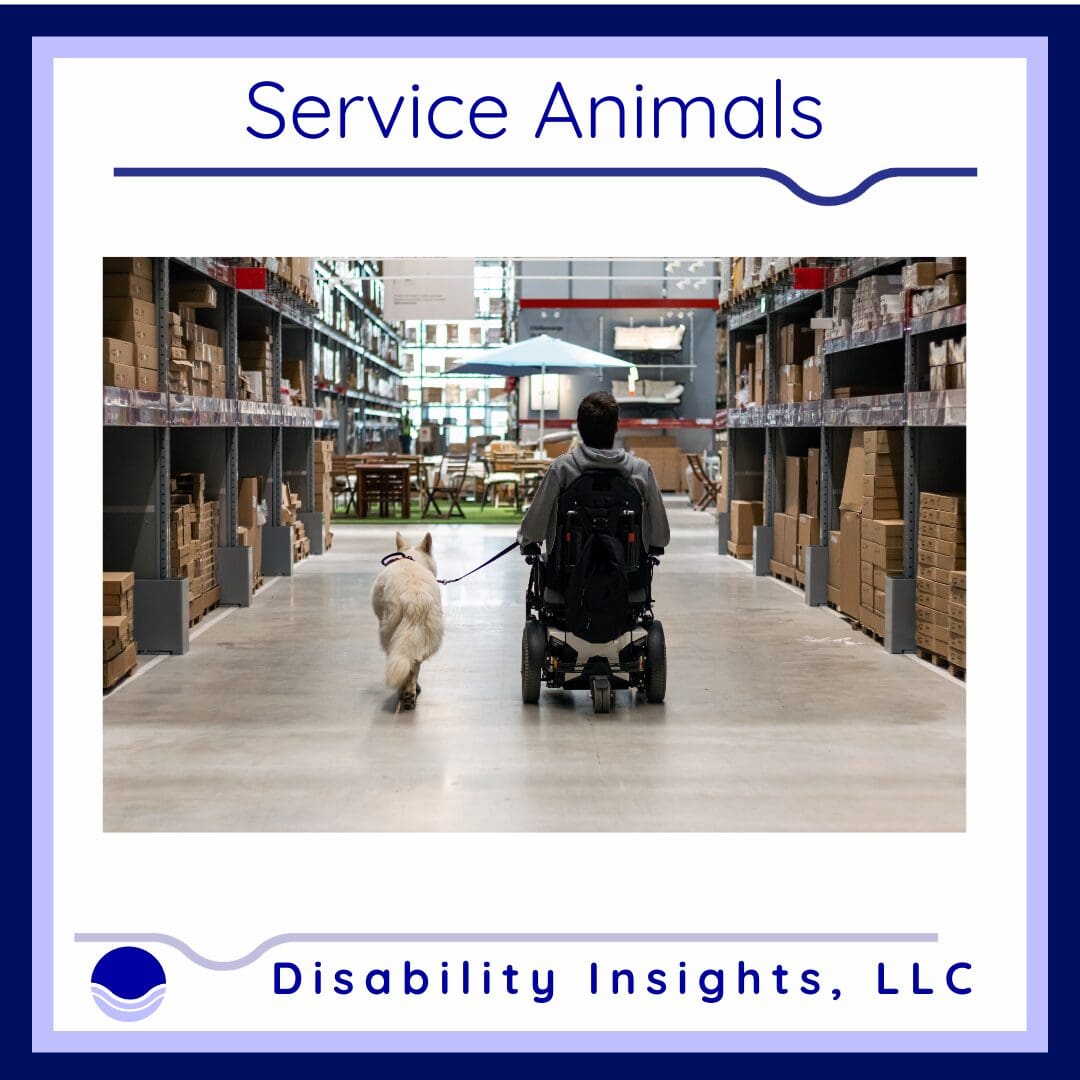
Understanding the ADA and Service Animals: Your Questions Answered
By: Deborah Dietz
Service animals play an essential role in the lives of people with disabilities, helping them navigate the world with greater independence and confidence. The Americans with Disabilities Act (ADA) provides important protections for individuals who rely on service animals, ensuring equal access to public spaces. However, there are often misconceptions about the requirements for service animals under the law. Below, we answer some of the most common questions about service animals and the ADA to help clarify these important protections.
What are service animals under the ADA?
Service animals are defined under the Americans with Disabilities Act (ADA) as dogs individually trained to perform tasks directly related to a person’s disability, though in some cases, miniature horses may also qualify. These tasks must mitigate a disability, such as guiding individuals who are blind, alerting individuals who are Deaf, pulling a wheelchair, or retrieving items for someone with restricted mobility. Service animals are allowed to accompany their handler in all public areas, including businesses and government facilities, as long as they do not pose a direct threat to the health or safety of others or fundamentally alter the nature of a service or program. Emotional support animals, therapy animals, or pets are not considered service animals under the ADA, as they are not trained to perform specific tasks for a disability. Businesses and entities can only ask two questions regarding a service animal: if it is required because of a disability and what task it has been trained to perform; they cannot demand documentation or proof of training.
Do service animals have to be professionally trained?
No. The ADA allows people with disabilities to train their service dogs themselves and does not require the use of professional service dog training programs. What matters is that the dog is individually trained to perform tasks directly related to the person’s disability. This flexibility ensures that individuals can tailor the training to meet their specific needs.
Do service animals have to wear a vest, patch, or special harness identifying them as service animals?
No. The ADA does not require service animals to wear any identifying gear, such as a vest, ID tag, or special harness. While some handlers choose to use these items for clarity or convenience, it is not legally mandated. The focus under the ADA is on the service animal’s function, not its appearance.
Does the ADA require service animals to be certified?
No. The ADA does not require service animals to be certified, and covered entities may not demand documentation, such as proof of certification, training, or licensing, as a condition of entry. There are organizations that sell service animal certifications or registration documents online, but these do not convey any legal rights under the ADA. The Department of Justice does not recognize them as proof that a dog is a service animal.
Can my city require me to register my dog as a service animal?
No. Mandatory registration of service animals is not permissible under the ADA. However, service animals must comply with general licensing and vaccination requirements that apply to all dogs, such as rabies vaccinations or pet licenses. These rules are public health measures and are not considered discriminatory under the ADA.
Did you know that Florida has a law about misrepresenting a service animal?
In Florida, there is a law that makes it illegal to knowingly and willfully misrepresent yourself as using a service animal or being qualified to use or train a service animal. This is considered a second-degree misdemeanor, punishable as provided in s. 775.082 or s. 775.083, and also requires the individual to perform 30 hours of community service. This community service must be completed in no more than six months and must benefit an organization that serves individuals with disabilities or another entity at the discretion of the court. This statute helps protect the rights of people with disabilities and ensures service animals are used appropriately.
Resources for More Information
ADA Service Animal Overview U.S. Department of Justice – ADA Requirements for Service Animals.
Frequently Asked Questions About Service Animals and the ADA U.S. Department of Justice – FAQ
Disclaimer: The information provided in this blog post is for general knowledge and understanding only and is not intended to be, nor should it be considered, legal advice. Every situation is unique, and laws may vary depending on jurisdiction. If you require legal advice, please consult a licensed attorney who can address your specific legal needs. The content shared here is not a substitute for professional legal counsel and is meant solely for informational purposes.
